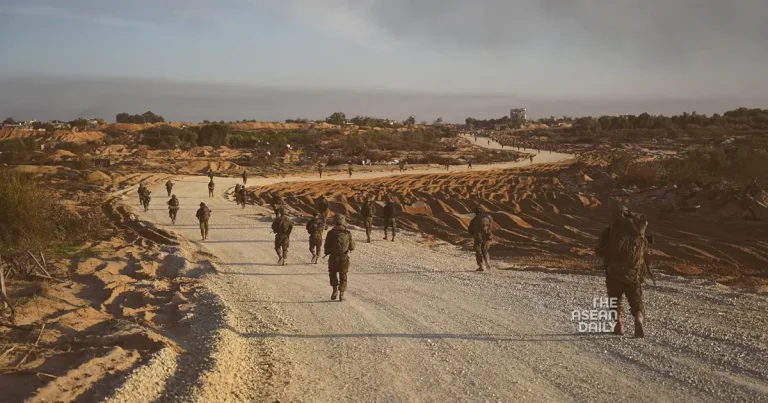14-12-2023 (GAZA) Israel faced its most significant combat losses in over a month on December 13 following an ambush in the ruins of Gaza. The escalating conflict has resulted in growing diplomatic isolation for Israel, coupled with an increase in civilian casualties and a deepening humanitarian crisis in the Palestinian territory.
Intense clashes were reported in both the northern and southern parts of Gaza, just a day after the United Nations called for an immediate humanitarian ceasefire. US President Joe Biden expressed concern over Israel’s “indiscriminate” bombing of civilians, highlighting its negative impact on international support.
Israeli Prime Minister Benjamin Netanyahu, however, remained resolute, declaring that the military would press on despite international pressure for a ceasefire. Addressing soldiers in Gaza via radio, he stated, “We’re continuing until the end, until victory, until Hamas is annihilated. I say this in the face of great pain but also in the face of international pressures. Nothing will stop us.”
Israel reported the loss of 10 soldiers in the past 24 hours, including a full colonel commanding a forward base and a lieutenant-colonel commanding a regiment—marking the deadliest day since October 31. The majority of the casualties occurred in the Shejaia district of Gaza City in the north, where troops were ambushed while attempting to rescue another group of soldiers engaged with Hamas fighters in a building, according to military sources.
Hamas seized the opportunity to assert its resilience, stating that Israeli forces could never subdue Gaza. A spokesperson for the group remarked, “The longer you stay there, the greater the bill of your deaths and losses will be, and you will emerge from it carrying the tail of disappointment and loss, God willing.”
In a televised address, Hamas Chief Ismail Haniyeh dismissed any future arrangement in Gaza without the involvement of Hamas as a “delusion.” The shift in global sympathy was palpable. Initially supported when Israel launched a campaign to annihilate the Hamas militant group that controls Gaza, the situation has since turned grim. Israel’s siege on the enclave has resulted in widespread destruction, with Gaza’s health ministry reporting at least 18,608 people killed and 50,594 injured since October 7.
Warplanes continued to bombard Gaza, exacerbating the dire conditions for hundreds of thousands sleeping in makeshift tents, particularly with the onset of winter rain. The majority of Gaza’s 2.3 million people have been left homeless.
In Rafah, in Gaza’s south, a family killed in an overnight air strike lay in the rain, covered in bloodied white shrouds. The grim scene prompted emotional reactions from relatives, decrying the loss of innocent lives.
The impact of Israel’s ground assault was evident in a cemetery in the Al-Faluja neighborhood of Jabalia, northern Gaza, where tanks had churned up the ground, breaking and scattering gravestones and disturbing some graves.
Since the collapse of a week-long truce at the beginning of December, Israeli forces have expanded their ground campaign from the northern Gaza Strip to the south, storming the main southern city of Khan Younis. The fighting has intensified amid the rubble of the north, where Israel had previously claimed to have achieved its military objectives.
Hospitals in the north have ceased functioning, while those in the south are overwhelmed with the dead and wounded. Dr Chris Hook, a British physician with the medical charity MSF at Nasser hospital in Khan Younis, expressed the harrowing reality, stating, “Doctors, including myself, are stepping over the bodies of children to treat children who will die.”
Israel contends that it is facilitating increased aid to Gaza through Egypt’s border and has announced daily four-hour pauses in operations near Rafah to assist civilians. However, the United Nations argues that cumbersome inspections and insecurity limit aid flows.
The UN General Assembly’s vote demanding a ceasefire holds no legal force but reflects a significant erosion of international support for Israel’s actions. Three-quarters of the 193 member states voted in favor, with only eight countries, including the United States and Israel, voting against.
In a notable sign of division between the US and Israeli leaders, President Biden called for a change in Netanyahu’s hardline government. He emphasized that ultimately, Israel “can’t say no” to an independent Palestinian state—a stance opposed by far-right members of the Israeli cabinet.




